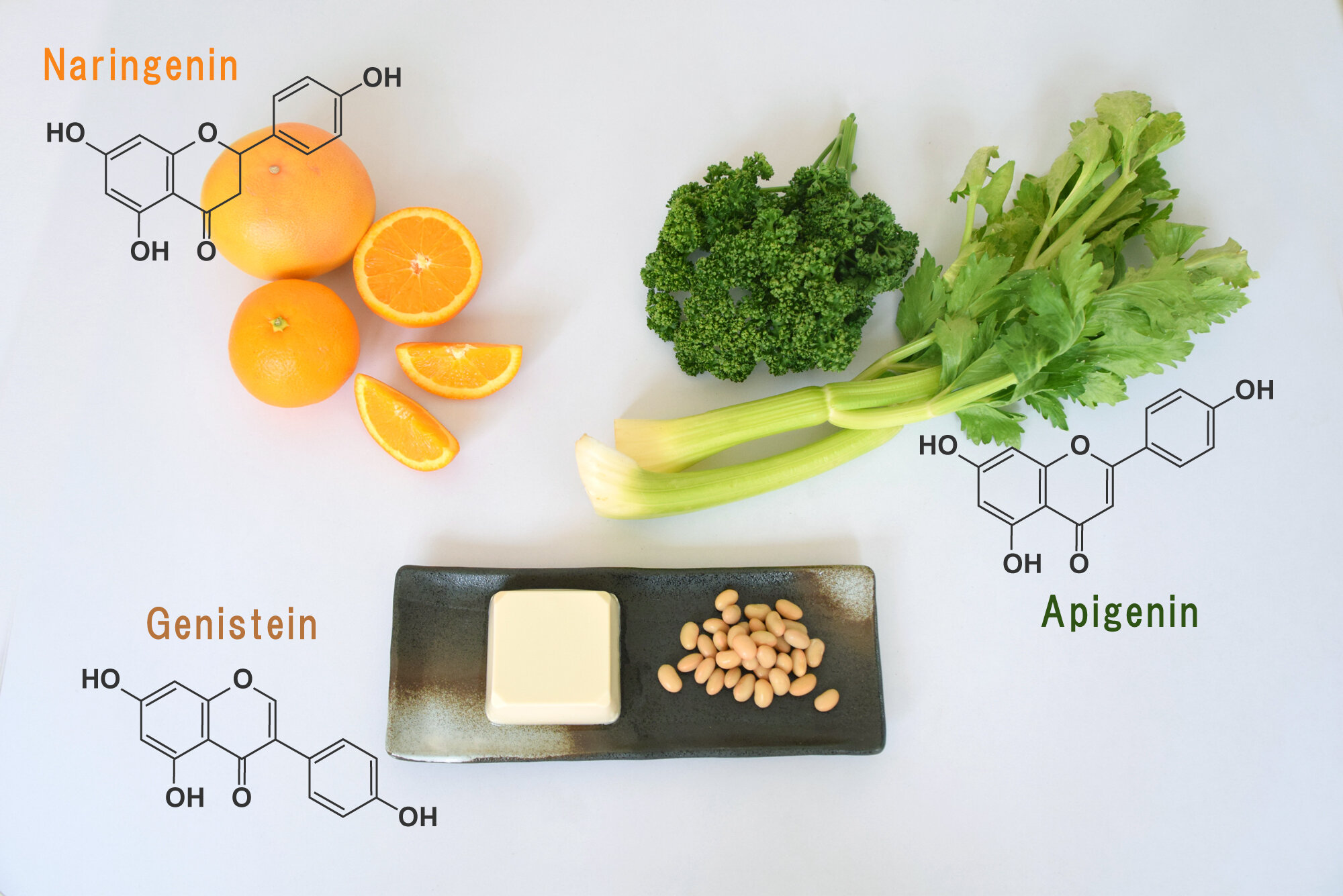

In a world where plant-based lifestyles are on the rise, the power of foods such as broccoli, celery, and tofu, which are rich in flavonoids, is becoming clearer. Flavonoids are phenolic compounds produced by plants that are essential for plant development and defense and have long been said to have therapeutic and preventive effects against cancer and heart disease. However, the exact process of how our bodies metabolize flavonoids remains unclear.
An international team of researchers led by visiting researcher Tsutomu Shimada and Professor Shigeo Takenaka of the Graduate School of Human Life and Ecology at Osaka Metropolitan University, has shed light on the mechanism of three major flavonoids—naringenin, apigenin and genistein—and the processes by which the body metabolizes them. Molecular docking analyses revealed that human enzymes modify flavonoids in a similar way to how plants modify flavonoids.
“The results of this research are fundamental in elucidating the correlation between the metabolism of flavonoids in the body and their potential health benefits,” explained Professor Takenaka.
Their findings were published in Chemical Research in Toxicology.
Other researchers on the paper are from Osaka Institute of Public Health, Showa Pharmaceutical University, Konkuk University and Vanderbilt University.
More information:
Haruna Nagayoshi et al, Oxidation of Naringenin, Apigenin, and Genistein by Human Family 1 Cytochrome P450 Enzymes and Comparison of Interaction of Apigenin with Human P450 1B1.1 and Scutellaria P450 82D.1, Chemical Research in Toxicology (2023). DOI: 10.1021/acs.chemrestox.3c00229
Provided by
Osaka Metropolitan University
Citation:
Decoding flavonoid metabolism: A closer look at plant-based diets (2023, December 4)
retrieved 4 December 2023
from https://phys.org/news/2023-12-decoding-flavonoid-metabolism-closer-plant-based.html
This document is subject to copyright. Apart from any fair dealing for the purpose of private study or research, no
part may be reproduced without the written permission. The content is provided for information purposes only.





